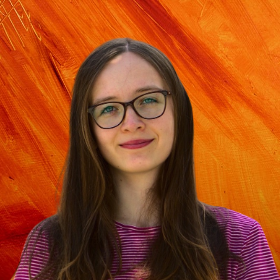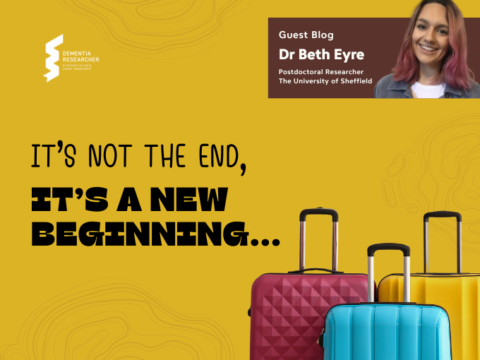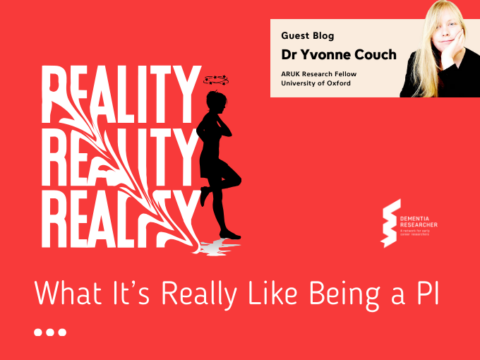The past 18 months have been adventurous. From moving to a different country on my own, through the infamous “I-have-no-idea-what-I-am–doing” phase, to gradually becoming settled in my new researcher life with all its perks and peculiarities. Yes, you read that right – it has been something over a year since I started my research PhD.
I knew a PhD studentship would be a learning experience. But there are also quite a few tricks of the trade I wish someone had mentioned before I had started, so that I could have avoided learning them the hard way. This is a list of such learnings. I hope they will be helpful to someone else out there – whether you are just starting your own PhD journey or just need to feel less alone with the PhD storms you have already weathered!
 You can ask your colleagues for help, even if they work on different projects. I came to my PhD after a year-and-a-half-long industry stint. In the company I had worked for, teamwork was not just a buzzword. Helping colleagues was a part of my job, as we were all working towards shared company goals, mission and vision, which were – with a greater or lesser success – explicitly defined. If someone struggled with delivering results, someone else in the company would always step in and help finish what was needed.
You can ask your colleagues for help, even if they work on different projects. I came to my PhD after a year-and-a-half-long industry stint. In the company I had worked for, teamwork was not just a buzzword. Helping colleagues was a part of my job, as we were all working towards shared company goals, mission and vision, which were – with a greater or lesser success – explicitly defined. If someone struggled with delivering results, someone else in the company would always step in and help finish what was needed.
In contrast, a PhD can feel very solitary. After all, many PhD students are working on their projects completely alone. Even if they are not, a PhD thesis is supposed to consist of an individual’s original work. Partly because of this, I felt like a lone wolf at the start of my PhD. I did not want to shoot too many work-related questions at others in my lab, who were mostly working on projects that seemed unrelated to mine. Instead, I saw my supervisor as my sole collaborator and main source of information. In hindsight, this was not the best strategy.
It took me a while to learn that student-supervisor meetings should be more about discussing the “big picture” – interpreting results and brainstorming project ideas – rather than about getting feedback on writing emails and code. If there are other people in your lab, your office, or even your department who might be able to help — go and ask them first. You may be surprised at how much everyone is willing to help, and at how much you actually have in common. Your colleagues can bring a lot to your PhD life – from pre-filled paperwork examples to methodological skills from past internships. Don’t worry if you can’t initially repay the favour – as you progress through your PhD, you are likely to become an expert in many different topics!
 Technology can be helpful for you in your work only as long as it works for you. There are some really nice systems, apps and websites nowadays to help you speed up your research. In my PhD work, I mostly rely on a combination of Todoist for task tracking, Zotero for simple reference management, and Notion for more complex literature notes and project management. For time management, I was largely inspired by the popular Getting Things Done methodology, and for reference management, my system is loosely based on the Zettelkasten system, which has recently received a lot of hype among knowledge workers. (More on the specifics of my workflow another time.)
Technology can be helpful for you in your work only as long as it works for you. There are some really nice systems, apps and websites nowadays to help you speed up your research. In my PhD work, I mostly rely on a combination of Todoist for task tracking, Zotero for simple reference management, and Notion for more complex literature notes and project management. For time management, I was largely inspired by the popular Getting Things Done methodology, and for reference management, my system is loosely based on the Zettelkasten system, which has recently received a lot of hype among knowledge workers. (More on the specifics of my workflow another time.)
On a related note, I have recently discovered two great software tools for literature reviews: Connected papers, which enables you to track relationships between papers based on citations and visualise them in beautiful graphs, and Research Rabbit, which works like Spotify for papers and recommends you relevant literature; this can even be based on a selection of papers in your Zotero library! Whenever I want to check that I haven’t overlooked an important part of the literature, I run my key papers through these two tools and often discover interesting hidden gems.
Technologies are great, but before you implement an overkill of a system or invest into a Connected Papers subscription, be sure to consider if it is really worth your time and money. This is an issue that I have been running into repeatedly – and one that I usually only realise when I show my system to a friend or colleague and describe aloud how I work with it. It took me a lot of tweaking and careful balancing to get from organisational overload to a sense of being on top of things. The important thing is to regularly review your work system and modify as you go based on your current experience. If you find out that the super awesome note-taking system – that you read three books about – only brings sweat and tears and just does not work for you… perhaps it is time to let it go!
 If you are bored by a paper or book you are reading, you are reading it in too much detail. One of the most useful habits I have implemented in the first year of my PhD is to regularly work with the literature. I have a placeholder in my calendar every workday to remind me to process at least some of the papers I have saved for later reading. Sometimes, this turns into a long reading and writing session, while on other occasions I just briefly fly through a few links I saved, delete some and categorise others.
If you are bored by a paper or book you are reading, you are reading it in too much detail. One of the most useful habits I have implemented in the first year of my PhD is to regularly work with the literature. I have a placeholder in my calendar every workday to remind me to process at least some of the papers I have saved for later reading. Sometimes, this turns into a long reading and writing session, while on other occasions I just briefly fly through a few links I saved, delete some and categorise others.
Scientific reading can be very time-consuming; but a PhD seems like a lot of time. Spoiler alert: It is not. Even though you took this time to fully immerse yourself into a research topic and learn the nitty-gritty details of it, you are just not going to have time to read every relevant paper from start to finish. You will not even be able to find all the relevant papers. There is simply too much to read.
The trick is to realise that academic reading only makes sense if you translate it into your own writing or research as soon as possible. Carefully reading something that you do not see valuable either for your current work or for your own interest is a waste of time. Do not be afraid to just skim through the boring bits. And if you feel like a piece of reading could be useful for later, just take some minimal notes to keep track of where you will find which type of information. I find it much easier to stay on top of literature when I do not have to keep it all in my own head.
 Extra income is not always worth extra time. At the beginning of my PhD, I had a situation with university HR and Irish public services. Bits of my paperwork had got lost along the way, which led to me only receiving my first three stipend payments in the third month of my PhD. (Yes, very crappy indeed, especially if you have just used most of your savings on relocation.) I got scared about money, so I took on a side-job.
Extra income is not always worth extra time. At the beginning of my PhD, I had a situation with university HR and Irish public services. Bits of my paperwork had got lost along the way, which led to me only receiving my first three stipend payments in the third month of my PhD. (Yes, very crappy indeed, especially if you have just used most of your savings on relocation.) I got scared about money, so I took on a side-job.
The side-job was great. It was a position in industry, potentially helpful for my future career plans. Importantly, it only took me between 5–10 hours a week, which sounded very doable – at least on paper. In practice, this was only manageable as long as it was business as usual in both my full-time PhD and my side-job. As soon as a deadline started looming in either side of the equation, I would lose my balance.
I am not Elon Musk and very much enjoy sleep, so I ended up dropping the side-job. It was not an easy decision to make and everyone in a similar situation will have to make their own. The financial reality of doing a PhD in many countries is gloomy, especially for international students who often have to pay for visa and health insurance on top of ever-increasing living expenses. You might find out that the budget expectations you made before your PhD were too optimistic, and you are certainly unlikely to be able to save up much money during your PhD. If you do find yourself with the “luxury” of deciding between earning a decent salary or being able to focus on just one thing, make sure to consider not only your financial comfort but also the time you will need to rest and recharge. Only you will know what is more important for your wellbeing and mental health in the long run.
 Everyone gets weird results. So far, conferences might well be my favourite thing about doing a PhD. I have been lucky enough to attend one within my first year and another one a few months into my second year. I loved listening to people present very new work in my field, but also broadening my horizons within other areas and, importantly, getting feedback on my own work. It was great to chat to the researchers I have cited in papers and to associate Twitter bios with real faces, not to mention the exciting opportunity to travel and the perks of free coffee. Then there is the additional benefit of improved productivity – nothing works better to speed up data analyses than a poster deadline.
Everyone gets weird results. So far, conferences might well be my favourite thing about doing a PhD. I have been lucky enough to attend one within my first year and another one a few months into my second year. I loved listening to people present very new work in my field, but also broadening my horizons within other areas and, importantly, getting feedback on my own work. It was great to chat to the researchers I have cited in papers and to associate Twitter bios with real faces, not to mention the exciting opportunity to travel and the perks of free coffee. Then there is the additional benefit of improved productivity – nothing works better to speed up data analyses than a poster deadline.
But data analyses do not always go as expected. You may have planned an amazing study, waited patiently for ethics approval, collected lots of data, learned how to write loops in R and… got a completely unexpected, hard-to-explain result that goes against everything you have read so far. At first, this might feel like a failure. It also felt like a failure to me when a measure I was trying to validate did not behave as intended. I was very much tempted to throw it into the bin.
However, what struck me at my first conference poster session was that every single one of us presenting data had some perplexing results. Maybe this perplexity becomes less obvious in published papers, which often present results in a smooth and polished manner. However, baffling results are an integral part of (honest) science. Now I even dare to say they are one of the most exciting parts! Not only is it very important to report such results if we want to fight the file drawer effect; it is the unexpected that often sparks ideas and points toward new directions.
This brings us to the end of my list. What other things do you find good to know before starting a PhD? You can let us know in the comments.
And then – time to get back to science!

Anna Marie Rosická
Author
Anna Marie Rosická is a PhD Student at Trinity College Dublin. Anna received a master’s degree in psychology from the Masaryk University in Brno, Czech Republic, and gained industry experience working as a user experience researcher in IT. Now she studies the effects of ageing and modifiable risk factors on brain health, using gamified cognitive assessments and large-scale data from the smartphone app Neureka.

 Print This Post
Print This Post




